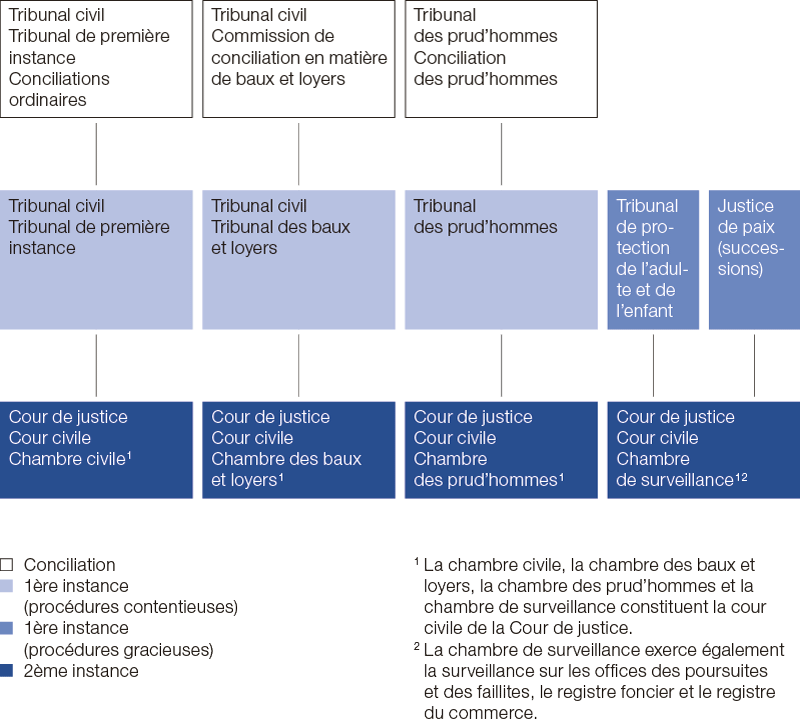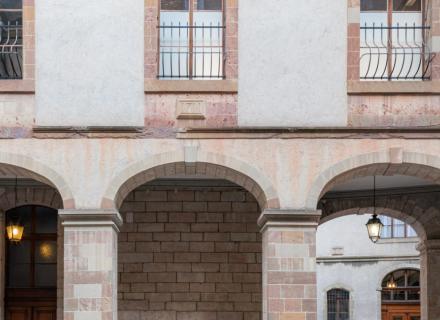Schematic illustration of the civil branch
The civil courts have also jurisdiction on debt collection and bankruptcy matters (removal of the objection, seizure and agreement).
In order to issue their decisions, the courts summon and hear the parties and potential witnesses and order expert opinions.

Understanding the civil branch through a video

Civil justice: The divorce of Fabienne and Alexandre
After several years of marriage, Fabienne begins the process of divorcing her husband Alexandre.
The procedure before the judge includes a conciliation hearing.
The civil justice system settles disputes between individuals, arising for example from their family ties.



